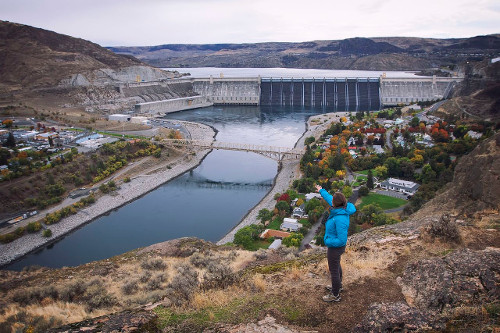SUBSCRIBE TO THE FREE NEWSLETTER
Your task today: recommend Cascadia Daily to a friend…
Thanks for signing up for the Pacific Northwest’s tastiest selection of news, culture, and thought-provoking writing. We hope you’re enjoying this snapshot of life in the Cascadia bio-region in your inbox every weekday.
Cascadia Daily is an e-newsletter from Cascadia Magazine, a non-profit online magazine dedicated to publishing quality journalism, arts & environmental coverage, photography, essays, fiction, and poetry from across the region–from Nanaimo to Eugene, from Seattle to Pendleton.
If you enjoy Cascadia Daily and Cascadia Magazine, you can do is a big favor today: forward this newsletter to a friend you think might appreciate it. Or convince them to sign up. It’s free, after all! You can sign up online here.
Thanks for subscribing to Cascadia Daily. We’re in the midst of our June fund-raising drive, and it’s thanks to the generous financial support of readers like you that we can continue to offer this newsletter and great writing at Cascadia Magazine. If you’d take a moment to visit our donate page, we’d appreciate it.
Sincerely,
Andrew Engelson
editor & publisher
Cascadia Magazine original: A poet and biologist listen to the bees
The new book Listening to the Bees is a unique collaboration between poet Renée Sarojini Saklikar and renowned biologist and bee expert Mark Winston. Through the distinct but complementary lenses of science and poetry, Winston and Saklikar reflect on the devastation wrought by overly intensive management of agricultural and urban habitats.
Now online at Cascadia Magazine, in conversation with Vancouver poet Rachel Rose, the authors discuss ways both science and poetry can change how humans perceive our interactions with the natural world.
It’s a fascinating conversation. Read the full interview online at Cascadia Magazine.
Made homeless by Vancouver’s impounding of vehicles
CBC reports on a man made homeless after the city of Vancouver impounded his RV. The city sent him a $5,000 bill. Meanwhile, the city of Seattle is struggling to keep up with trash generated at the various sites around the city where more than 3,000 people camp out in their vehicles each night. Read more about the difficulties of homeless people living in their vehicles in Will Sweger’s recent feature for Cascadia Magazine.
Salem’s mayor calls for investigation into city’s toxic algae problem
The Statesman Journal reports that Salem, Oregon mayor Chuck Bennett is calling for an investigation into why toxic algae blooms at Detroit Lake have resulted in contamination of the city’s drinking water. Health officials are warning children and residents with compromised immune systems to avoid drinking Salem’s tap water.
Eastern Washington has a neo-Nazi problem
A crop of slick young neo-Nazis is trying to normalize their image and become part of eastern Washington’s Republican party, writes Shawn Vestal for the Spokesman-Review. “They come in suits and ties, college boys with at least occasional good manners, wearing pocket squares and high-and-tights, spiffed up and buff, ignorant but deploying 25-cent words, putting out podcasts and YouTube videos complete with advertisements for home products made with essential oils.” The Inlander has more on how James Allsup, an outspoken white supremacist, was elected as a precinct committee officer of the Whitman county GOP.
Will Washington pass a carbon “fee” after it rejected carbon “tax?”
Kate Yoder, writing for Grist, has detailed analysis of a campaign to pass an initiative that would create a carbon fee in Washington state. A previous initiative in the state and a bill in the legislature failed to pass. But the well-funded coalition behind I-1631 is convinced they have one neat trick to finally getting it passed: calling it a “fee” and directing revenue to clean energy programs and assistance for low-income residents to pay their utility bills.
An exhibit in Vancouver highlights the art of protest
Writing for The Tyee, Dorothy Woodend writes about the connection between protests against KinderMorgan’s pipeline expansion and a new exhibit Arts of Resistance at Vancouver’s Museum of Anthropology. Whether it’s hand-crafted signs against pipelines, “knit graffiti,” or the amazing array of hand-crafted objects made by Latin American artists fighting for justice, they’re all part of the same movement.
Three poems by Constance Schultz
At Empty Mirror, you can read three new poems by Constance Schultz, who lives near Grand Coulee dam in eastern Washington. This snippet is from “when we move in February and it feels like spring:”
“and as a deer gang
harass a neighbor’s garden
at midnight she sneers
can you talk about a dam every day
can you feel it you feel the depth
can it snag your
thoughts unaware…”
Read the full poems online at Empty Mirror.
That’s today’s selection of news, arts, and culture from across Cascadia. If you haven’t already, please visit our donate page and help Cascadia Magazine reach its goal of $15,000 in the month of June. Thanks! –Andrew Engelson
Photo credits: Grand Coulee dam via Wikimedia Commons, © Steven Pavlov CC BY-SA 4.0

